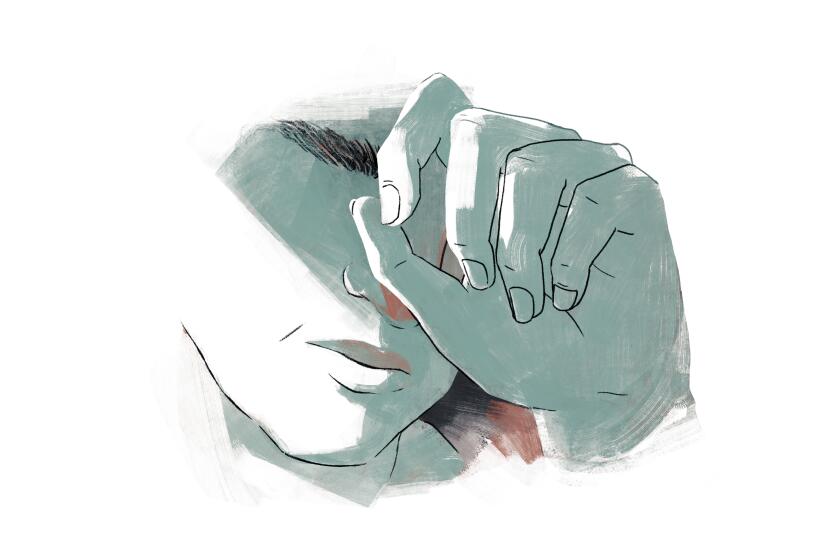S. Africa Says It Will Ease Race Policies : U.S. ‘Encouraged’ by Pledge; 2-Day Talks Produce Few Details
South Africa concluded two days of meetings with a U.S. delegation Friday and pledged to reform its racial practices to defuse black anger and appease growing international criticism, U.S. officials said Friday.
“I would think we are encouraged by what we are hearing,” White House spokesman Larry Speakes said after national security adviser Robert C. McFarlane briefed President Reagan on his talks in Vienna with South African Foreign Minister Roelof F. (Pik) Botha.
Unusual secrecy has surrounded the talks. Speakes said Botha had outlined specific steps that his government is prepared to take, but he refused to reveal any of the details. McFarlane, in a brief encounter with reporters, would say only that the South African government is “in the middle of a very serious process.”
Limited Steps Expected
There was little question, however, that while the changes will be aimed at some of the harsher applications of South Africa’s apartheid system, they will stop well short of totally dismantling its segregationist policy, as the United States and other Western nations have urged.
In virtually identical statements, Speakes and State Department spokesman Bernard Kalb said the South African government is reviewing its racial policy.
“To their credit, the South Africans are taking into consideration the views of the United States government and of other countries,” the statements said. “We expect this process in South Africa to continue for a matter of days (or) perhaps weeks.”
South African President Pieter W. Botha is scheduled to address the annual congress of the Natal branch of his governing National Party on Thursday. Reports from South Africa suggested that President Botha--who is no relation to his foreign minister--will use the speech to announce reforms.
Freeing of Mandela
U.S. congressional sources, quoted by United Press International, said South Africa is considering lifting the three-week-old state of emergency, easing laws restricting the movement of blacks and freeing nationalist leader Nelson Mandela. There were no further details. Mandela, who has been imprisoned for more than 20 years, recently rejected a government offer for a conditional release.
McFarlane returned to Washington to report to the President after Thursday’s first meeting with Foreign Minister Botha.
The two other members of the U.S. delegation--Chester A. Crocker, assistant secretary of state for African affairs, and Herman W. Nickel, the U.S. ambassador to Pretoria who was recalled for “consultations” in June to protest South African military raids into Angola and Botswana--remained in Vienna for additional talks Friday. Botha later flew to West Germany for talks with officials there.
Reuters reported from Frankfurt that Botha said the United States did not give him a deadline to dismantle apartheid or end the state of emergency, which has resulted in the arrest of about 1,500 people and has spawned increasing violence.
“The Americans have not presented us with an ultimatum,” Botha said. “It is not their style to do so. There is no need. We have never been anything but good friends.”
He declined to discuss the substance of the talks but said that from South Africa’s viewpoint, “they went quite well.”
Both Speakes and Kalb made it clear that the U.S. delegation was outspoken in its call for reforms in Pretoria’s policy. Speakes said the Administration does not plan to change its policy of “constructive engagement” toward South Africa and will continue to oppose economic sanctions against the Pretoria government.
But he added that the U.S. delegation stressed to Botha that anti-South African sentiment is growing in Congress and that the lawmakers will impose sanctions unless South Africa adopts immediate and substantial reforms.
Other U.S. officials said McFarlane warned Botha that the Administration might be unable to maintain its policy of quiet diplomacy unless it is able to show some positive results.
The Administration clearly welcomed the Vienna meeting as an opportunity to demonstrate that constructive engagement can be made productive before the Senate returns from its recess in September to take up a conference committee report, already adopted by the House, which would impose sanctions. The Administration opposes the bill, and Reagan has hinted that he might veto it, but support in Congress appears to be well over the two-thirds needed to override a veto.
Speakes and Kalb, as they have done all week, glossed over Reagan’s remark to a news briefing that the state of emergency, which took effect July 21, was a “governmental reaction to some violence.” Before and after the President’s session with reporters, the line followed by official government spokesmen has been that apartheid is the cause of the violence and that the state of emergency aggravated it.
Asked about the situation in Durban, where blacks and Asians have battled each other with heavy loss of life, Kalb said government repression is to blame.
“The prevailing climate of violence and repression in South Africa has created conditions where racial polarization is rising,” he said.
More to Read
Start your day right
Sign up for Essential California for news, features and recommendations from the L.A. Times and beyond in your inbox six days a week.
You may occasionally receive promotional content from the Los Angeles Times.






